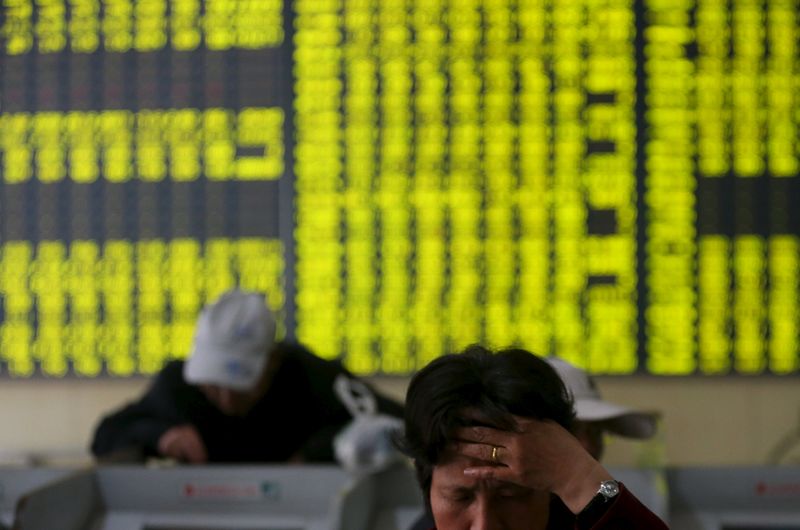By Marc Jones
LONDON (Reuters) - Global investors are expected to pull $538 billion out of China's slowing economy in 2016, the Institute of International Finance (IIF) estimated on Monday, although the pace of outflows has dropped.
That number would be down a fifth from the $674 billion pulled out last year, the industry association said, but could accelerate again if fears re-emerge of a "disorderly" drop in the yuan, or the renminbi, as the currency is also known.
Capital exodus from China can influence emerging markets more generally, partly because of its sheer size and partly because sustained outflows can trigger more exchange rate volatility, which could then feed a fresh wave of outflows.
"A sharp drop in the renminbi would likely spark a renewed sell-off of global risk assets and trigger a flight of portfolio capital from emerging markets," the IIF said in a new report.
"Moreover, a sharp depreciation of the renminbi could lead to a round of competitive devaluation in other emerging markets, particularly in those with close trade linkages to China."
For now, though, outflows are slowing. Roughly $35 billion was pulled out in March, bringing the total since the start of the year to around $175 billion, well below the pace seen in the second half of 2015.
The IIF cited progress Chinese authorities had made in easing worries about the yuan's direction. They have emphasized there is more focus on its value against a basket of currencies, rather than just the U.S. dollar.
One "important unknown", however, is the threshold of currency reserves below which Chinese authorities would start to worry. They might then either allow the yuan to fall again or markedly tighten capital controls.
Headline reserves have already fallen from $4 trillion in June 2014 to around $3.2 trillion in February 2016. That is still high compared with most countries.
But using another calculation, developed by the IMF, the cushion between actual reserves and what could be required, has dropped to 15 percent from 50 percent just under two years ago.
"From this perspective, continued large capital outflows could lower the country’s official reserves to a level that is regarded as inadequate without a serious tightening of capital controls," the IIF said.
China accounted for almost 30 percent of total foreign capital inflows to emerging markets between 2000 and the end of 2014, a total of around $3.6 trillion.
Since then, however, outflows have taken hold, driven mainly by foreign banks cutting credit to Chinese firms, the firms themselves paying back their debt or international investors reducing holdings of yuan deposits.
Over the medium term, though, China should benefit from structural factors, the IIF said.
The IMF’s decision late last year to include the yuan in its quasi-currency 'SDR' basket should help inflows, while they could be "substantial" if major stock and bond index providers add China's domestic securities to their benchmark indices.
MSCI is set to decide on whether to include Chinese A-shares in its 23-country benchmark EM index (MSCIEF) in June.
(For IIF report click https://images.magnetmail.net/images/clients/IIF_2/attach/china_flows_april_2016.pdf)
